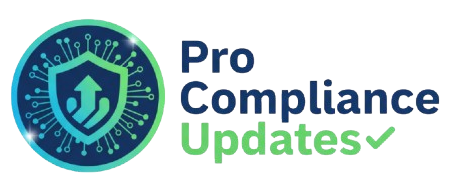The majority of cases of social media postings that get employees in trouble have to do with behavior or communications that display poor judgment. The definition of poor judgment can be spelled out as part of a job description with examples, with the caveat that the examples are not inclusive. Training in this area may be a more effective way to reduce incidents of social media postings that harm employees and the reputations of businesses.
WHY SHOULD YOU ATTEND?
Despite the business pluses of these sites and tools, they also create issues of security and legal liability for employers, and still, relatively little case law exists for organizations to turn to when weighing the risks. This webinar will help employers better understand the numerous laws that employers need to be concerned about when terminating employees for what they say or do on social media. And what you need to know before you terminate employees for comments they post on social media sites.
AREA COVERED
- State laws that may pose problems for you if you terminate an employee for a social media post, they made while off-duty
- Actions you can take to discipline an employee for their posts on social media sites like Facebook, LinkedIn, and Twitter
- What legal issues the NLRB could allege based on your social media policy?
- How to create a legally compliant social media policy?
- Best practices to protect your organization from these legal pitfalls
LEARNING OBJECTIVES
- How to discipline an employee for what they say or do on social media sites like Facebook, LinkedIn, and Twitter?
- NLRB actions against employers who have terminated their employees for what they post on social media sites
- What potential problems you could face by the NLRB for firing an employee for a Facebook post?
- Recent case law and mistakes to avoid when terminating an employee for comments on Facebook and Twitter
- How to protect your organization from these legal pitfalls?
- Analysis of state laws that prohibit terminations for lawful off-duty conduct
WHO WILL BENEFIT?
- HR professionals
- In-House Counsel
- Managers
- Business owners
- CEOs
- General counsel
Despite the business pluses of these sites and tools, they also create issues of security and legal liability for employers, and still, relatively little case law exists for organizations to turn to when weighing the risks. This webinar will help employers better understand the numerous laws that employers need to be concerned about when terminating employees for what they say or do on social media. And what you need to know before you terminate employees for comments they post on social media sites.
- State laws that may pose problems for you if you terminate an employee for a social media post, they made while off-duty
- Actions you can take to discipline an employee for their posts on social media sites like Facebook, LinkedIn, and Twitter
- What legal issues the NLRB could allege based on your social media policy?
- How to create a legally compliant social media policy?
- Best practices to protect your organization from these legal pitfalls
- How to discipline an employee for what they say or do on social media sites like Facebook, LinkedIn, and Twitter?
- NLRB actions against employers who have terminated their employees for what they post on social media sites
- What potential problems you could face by the NLRB for firing an employee for a Facebook post?
- Recent case law and mistakes to avoid when terminating an employee for comments on Facebook and Twitter
- How to protect your organization from these legal pitfalls?
- Analysis of state laws that prohibit terminations for lawful off-duty conduct
- HR professionals
- In-House Counsel
- Managers
- Business owners
- CEOs
- General counsel
Speaker Profile
 Stuart Silverman
Stuart Silverman
Stuart Silverman has been practicing law for almost 30 years and is the principal of the Law Offices of Stuart M. Silverman, P.A., located in Boca Raton, Florida. The emphasis of his practice is in the area of labor and employment law, and business and commercial litigation. Mr. Silverman has represented both private and public employers, as well as individual employees in a whole host of complex business disputes and employment settings at administrative levels, and state and federal trial and appellate courts. His extensive employment litigation experience includes claims under age, race, sex discrimination, wage and hour claims, whistleblower …
Upcoming Webinars

Leadership: Strategic Planning and Decision Making

Writing Techniques for Auditors and Risk Management Profess…

Language is Code - Intro to AI - Generative AI - ChatGPT an…

Gossip-Free: Leadership Techniques to Quell Office Chatter

Do's and Don'ts of Giving Effective Feedback for Performanc…

Women’s Hostility to Women at Work: Myth or Reality

4-Hour Virtual Seminar on Audit Proofing your Payroll Opera…

Do's and Don'ts of Documenting Employee Behaviour, Performa…


Retention Starts Here: Stop Losing Your Critical Talent and…


Practice Safe Stress ™: Preventing Burnout While Building R…

Impact Assessments For Supplier Change Notices

Cleanroom, Microbiology and Sterility Assurance Practices f…




Thriving in a Hybrid Workplace: Keys to Leadership and Team…

2-Hour Virtual Seminar on DeepSeek vs ChatGPT AI for CPAs a…

Understanding EBITDA – Definition, Formula & Calculation

FDA Regulation of Artificial Intelligence/ Machine Learning

Construction Lending And Real Credit Administration: Evalua…

Sunshine Act Reporting - Clarification for Clinical Research

How the OBBB Act will Impact Immigration Enforcement! Preve…


2-Hour Virtual Seminar on Outlook - Timesaving Tips and Tri…


Leadership Upskilling: Don’t Just Manage; Lead with Influen…

H-1B Visa Updates and Employer Strategies for 2026

Aligning Your HR Strategy with Your Business Strategy: A Ro…

HIPAA 2025 – Major Changes, Latest Rulings & Guidance

AI for Excel Professionals: Enhancing Productivity with Cha…

Dealing With Difficult People: At Work & In Life

Understanding Accounting for non - Accounting professionals



Excel Power Skills: Master Functions, Formulas, and Macros …
